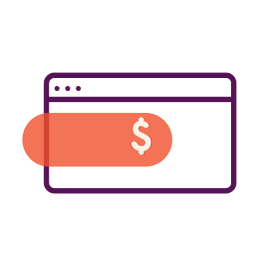There may be any number of reasons why you started your business: perhaps you have a passion for your product or skill, you want freedom to make your own decisions about your future, or maybe you couldn’t find the right job and decided to create your own. But in addition to any or all of those reasons, you no doubt hope your business will be financially successful, and that you’ll make money.
But financial success in business doesn’t just happen. Entrepreneurs can achieve a lot of sales and still not turn a profit. Or they can see success evaporate overnight due to a few bad financial decisions.
That’s why small business financial management is so key to long-term success. Here’s what that means and how to get started.
Why Financial Management Is Important For Small Businesses
Nothing will sink a business faster than money problems. Most businesses won’t last long if bills are piling up and money isn’t coming in quickly enough.
Staying on top of your small business finances, especially with a good accounting software system, also makes running your business a lot less stressful than constantly wondering where you stand. There’s enough stress in running your business; don’t let the lack of financial information you need to make informed decisions be one of them.
Basics Of Small Business Financial Management
Creating a solid financial foundation is a skill every small business owner can, and must develop. Here are the fundamental steps.
Creating A Budget
Creating a small business budget is part of creating a plan for success in your business. It’s not always easy. Small business owners don’t always know when they will make the next sale, or in some cases, when they will collect on that sale. But a budget gives you a framework and can help you track your progress.
It’s like planning a big trip. You may have a plan for what you intend to do each day, but things may not always go according to plan. There could be delays or the weather could be bad, but at least you have an idea of where you’re going and how you plan to get there. Your budget works the same way.
If you’re starting a new business, creating a budget can be even more challenging. As a startup, you may not know what to realistically expect in terms of income or expenses. That’s why creating a business plan, based on industry data, can be helpful. There are resources and tools available that can help you use data available from a variety of sources to create your business plan.
Keeping Good Financial Records
You have to keep good financial records. There’s no other choice if you want to succeed. You need financial records for tax purposes, and keeping your bookkeeping up to date can be helpful when you apply for small business financing or funding like venture capital.
It doesn’t have to be terribly time-consuming if you set up good systems, but if you’d rather have someone else handle it, budget to hire a bookkeeping service or tax pro who offers bookkeeping, and make sure they have the information they need from you to keep your bookkeeping up to date.
Cash Flow Management
Cash flow is one of the major challenges businesses face. Clients may pay slowly, or not at all. An unexpected expense can come up, making it difficult to pay regular expenses. Your budget can help with cash flow management, and having financing available, such as a line of credit or small business credit card, can also be critical for short-term cash flow problems.
Financial Goals
What do you want to achieve in 1 month, 1 year, 5 years, 10 years, 20 years? Setting financial goals gives you something concrete to measure. The process of setting financial goals in and of itself will allow you to really think about what you hope to accomplish. Setting aside time for financial planning is time well spent.
Financial Management Best Practices
There are a few simple steps you can take to help create good financial systems. The alternative is to run your business without financial accountability or planning, and that rarely ends well.
Delinquent taxes not only affect your business credit, but they can result in severe IRS penalties. Filing tax returns and paying your taxes on time isn’t just required, it’s also good for your small business financial health.
Unpaid bills can ruin your business credit and make it difficult to qualify for small business loans. On the other hand, paying bills on time can help you establish good business credit scores and make it easier to qualify for certain types of financing.
Separating Personal And Business Finances
One of the first things you’ll want to do as a small business owner is separate your personal finances from your personal finances. One of the simplest ways to do this is to use a business bank account and get a business credit card for purchases.
Even if your business is brand new, there are free business checking accounts that carry very low or no minimum opening deposit and no maintenance fees. That makes it easy to get a separate account where you can deposit business income and pay business expenses.
Plus, certain financing options will require business bank account statements to qualify. Having that information readily available may help streamline the process of getting approved.
Keeping An Eye On Income And Expenses
Tracking your money is also crucial. Whether you review your finances on a day-to-day or weekly basis, staying on top of the money going in and out of your business will make it much easier to spot issues. It can help in decision-making such as the need to make spending adjustments.
Again, a separate business bank account and a separate business credit card will make this much easier than trying to sort and track business expenditures from your personal accounts.
Use A Good Accounting Software System
One of the easiest ways to keep an eye on income and expenses is by using accounting software and keeping your business bookkeeping up to date. You’ll need this information to file your business taxes and to make quarterly self-employment tax payments, which is required for many freelancers, contractors and business owners.
Up-to-date bookkeeping allows you (or your tax pro) to create financial statements including balance sheets, cash flow statements, income statements or profit-and-loss statements. You can review these financial reports on a monthly or quarterly basis to help you make business decisions.
Certain types of small business loans (like bank loans or SBA loans) may require up-to-date financial statements to qualify.
Consulting An Accounting Professional
Small business taxes can be complex, and it’s easy to miss out on important tax deductions or tax requirements. A tax professional can help you navigate small business tax rules successfully.
If you’re just starting out or have a simple tax situation, business tax preparation software (along with accounting software) can allow you to do most or all of your business accounting yourself if you choose. Many tax prep software solutions include the option to pay for access to a tax pro for a relatively modest fee if you have questions or concerns.
If you pay payroll, you’ll want to consider a payroll software solution to help you pay payroll taxes on time and for the right amount.
Stay Abreast Of Changes In Tax Laws
It’s impossible for you, with a business to run, to stay on top of all tax changes. Unless, perhaps your business is accounting! (And even then it’s challenging.) That’s why so many business owners rely on accounting software, tax preparation software and tax pros such as CPAs or Enrolled Agents (EAs) to help them navigate those changes.
Tax preparation software, for example, can walk you through questionnaires to help you identify possible income tax deductions, or you can hire an accounting pro to do that for you.
But whether you go the DIY route or you outsource these tasks, someone is going to put your information into accounting software, so choosing the software that works for your business is the first step toward great financial management habits.
Here are excellent small business accounting software tools to consider:




Have at it! We'd love to hear from you and encourage a lively discussion among our users. Please help us keep our site clean and protect yourself. Refrain from posting overtly promotional content, and avoid disclosing personal information such as bank account or phone numbers.
Reviews Disclosure: The responses below are not provided or commissioned by the credit card, financing and service companies that appear on this site. Responses have not been reviewed, approved or otherwise endorsed by the credit card, financing and service companies and it is not their responsibility to ensure all posts and/or questions are answered.